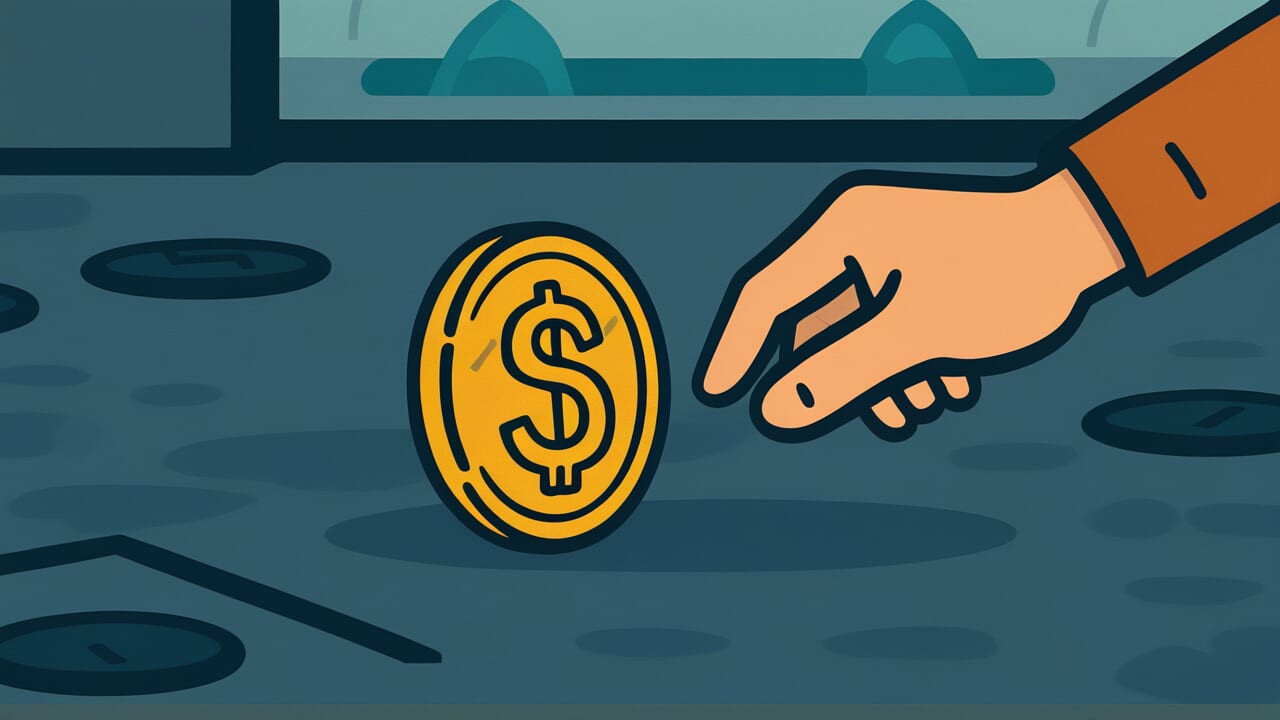How to Read “Bad money drives out good money”
Akka wa ryōka wo kuchiku suru
Meaning of “Bad money drives out good money”
This proverb describes how low-quality things push high-quality things out of the market. Quality items should be valued more, but in reality, inferior or cheap things often dominate while superior ones disappear.
People use this expression when lamenting unfair situations where quantity beats quality and fakes win over the real thing. It applies to workplaces where hard workers go unrewarded while clever people get ahead.
It describes industries where sloppy work becomes common instead of careful craftsmanship. It fits shopping districts where discount stores thrive while authentic shops struggle.
Today this phenomenon appears beyond economics in culture, education, and human relationships. Even online, sensational and easy content spreads faster than accurate and thoughtful articles.
This proverb continues to sound an alarm about these distortions in society.
Origin and Etymology
This proverb comes from an economic principle called “Gresham’s Law,” proposed by 16th-century English financier Thomas Gresham. In Europe at that time, coins with different amounts of gold and silver circulated together.
People kept high-quality coins with more precious metal and spent low-quality coins first. As a result, only bad coins remained in circulation while good coins disappeared from the market.
Japan adopted this principle as the proverb “Bad money drives out good money” when Western economics arrived after the Meiji era. Modernizing the monetary system was crucial for Japan’s economic development.
This phrase went beyond economic terminology to become a widely accepted lesson about human society’s fundamental nature.
What’s interesting is that this phenomenon can be observed in all fields, not just economics. The tendency to prioritize quantity over quality and easy choices over sincere effort appears throughout human society.
That’s why this specialized economic term became an everyday proverb.
Interesting Facts
Economics calls this “Gresham’s Law,” but there’s also a reverse phenomenon called “reverse Gresham’s Law.” In markets where consumers are discerning, quality products get valued and inferior goods get eliminated.
This means people’s awareness can change the flow of bad money driving out good money.
The phenomenon this proverb describes resembles the biological concept of “competitive exclusion.” Two species using similar resources in the same environment cannot coexist, and one will exclude the other.
It’s fascinating that both economics and ecosystems operate on similar competitive principles.
Usage Examples
- Online, only baseless rumors spread widely—truly “bad money drives out good money”
- In this industry, only contractors who cut corners survive—it’s become a case of “bad money drives out good money”
Universal Wisdom
The truth this proverb reveals points to fundamental human weakness and blind spots in social systems. Why do low-value things drive out high-value ones? Because humans easily drift toward immediate benefits and easy choices.
Quality things require time and cost. They need a discerning eye to recognize them. Inferior things, meanwhile, are cheap, convenient, and easy to understand.
In busy daily life, many people naturally choose the latter. But these accumulated choices lower society’s overall quality. This represents a fundamental dilemma where individually rational choices produce collectively irrational results.
What’s more serious is how this phenomenon accelerates. As good money decreases, people only know bad money. Generations grow up without knowing the real thing, and eventually bad money becomes the standard.
The quality standard itself declines.
Yet this proverb has been passed down for centuries because our ancestors recognized this danger. As both warning and self-reflection, these words keep asking us questions.
Are you drifting toward immediate benefits? Have you lost sight of what’s truly valuable?
When AI Hears This
The problem of bad and good money actually stems from “inability to distinguish between them.” Consider the example of gold coins. Imagine a situation where real gold coins and gold-plated fake coins are mixed together and look identical at first glance.
People with good coins think “this is real, so I don’t want to use it in a market mixed with fakes” and keep them. People with bad coins think “I’ll use this before anyone notices” and release them into the market.
The result is that only bad coins circulate in the market.
The key point here is that this phenomenon wouldn’t occur if everyone could instantly distinguish real from fake. The problem’s essence isn’t the existence of bad money but information asymmetry—the situation where “sellers know the quality but buyers don’t.”
Economist George Akerlof discovered the same structure in the used car market. Sellers know their car’s defects, but buyers can’t judge from appearance alone.
Good car owners refuse to sell at low prices and keep their cars off the market, so only problematic cars get sold. The market’s overall quality declines, and ultimately the market itself collapses.
This theory shows the importance of mechanisms that make quality visible—in other words, signaling. Warranties, review ratings, and certifications all function as devices to “make invisible quality visible.”
Lessons for Today
This proverb teaches modern people the danger of passivity. Bad money driving out good money isn’t a natural phenomenon but the result of each person’s choices.
First, it’s essential to develop an eye for recognizing the real thing. Don’t judge by cheapness or convenience alone. Make it a habit to consider what true value is.
Taking time to choose quality things benefits not just yourself but protects society’s overall quality.
Second, actively support good things. Appreciate people who do excellent work, choose honest products, and champion high-quality culture. Your single choice becomes power that protects good money.
The same applies at work. Don’t drift toward easy methods—continue doing careful work. This may sometimes seem like a loss, but in the long run, you yourself will be recognized as “good money.”
Having the strength not to be driven out by bad money is our responsibility as people living in modern times.



Comments